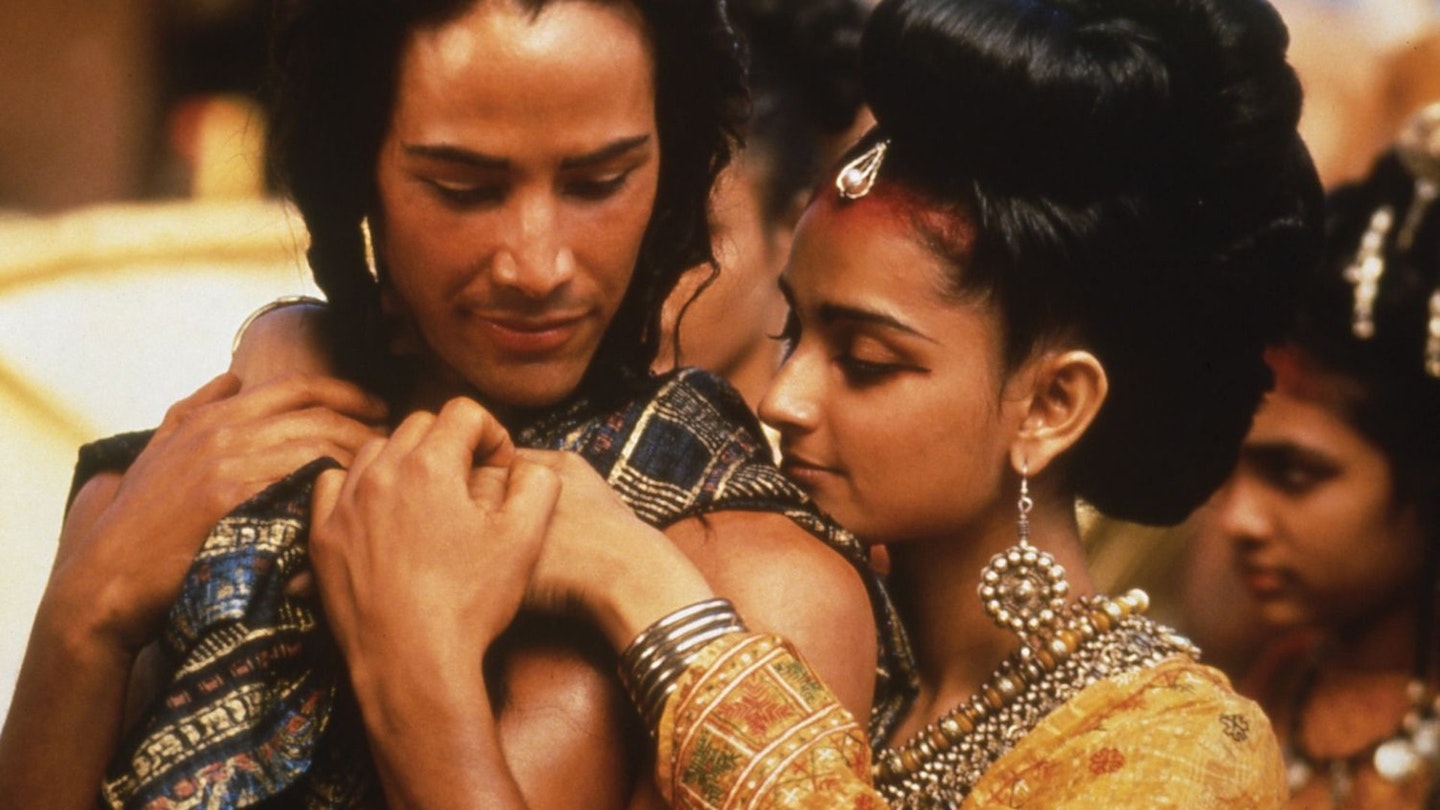In the 1920, Hollywood biblical epics like Cecil B. De Mille's original Ten Commandments told modern-day stories of troubled souls finding comfort in religion, with the Scriptures dramatised in spectacular flashbacks to huge sets thronged with suffering and orgiastic extras.
Having long nurtured the idea of doing a film about Buddhism, Bertolucci here hits on exactly the same outmoded formula, tossing a Janet And John version of the early life of the Buddha into a plot about a blond Seattle school kid (Alex Wiesendanger) who just might be the reincarnation of a Major League lama. As in De Mille's day, this allows for a pleasing spectacle, but there's also a rather absurd attempt to wring great lessons out of the trivialities of post-recession America. The oddest aspect of the story is that Isaak and Fonda, peculiarly cast as the spiritual kid's parents, are so unsuspicious about a bunch of bald-headed oriental strangers loitering around playgrounds in search of beautiful children. There is some token wrestling with the adjustment the kid would have to make to the lama life, but this issue is dropped in a silly plot development. Two other kids show up in Bhutan and Nepal who might also be the lama reborn and the film's head spiritual baldie (Ying Ruocheng) has to decide which, or which combination, of the children will be elevated to semi-sainthood.
Despite the film's length and breadth, it never gets past the first hurdle of storytelling, emerging as even less gripping than the reincarnation drama Audrey Rose, which was slightly more credible in dramatising the reaction of parents after they're told that their precious child is merely someone else come back to life. In the flashbacks to the 6th Century, with Keanu Reeves doing a solemn job of the moral awakening of Prince Siddhartha (who, of course, became Buddha), Bertolucci falls back on his trusty Last Emperor mix of screen-filling spectacle and unfamiliar ethnicity. The pictures are pretty, but the characters talk as if they were reading lines out of fortune cookies. Reeves' Peter Sellers-esque Indian accent isn't much help and his Nautilus physique looks nothing like all the older Buddhas you've ever seen.
The story of Siddhartha has dramatic potential, but this reverential film makes little of it, ignoring any conflict between the Prince's duties and his spiritual leanings that arise when he deserts his family to become a filthy hermit for God. Long, solemn and humourless, this isn't going to win many converts to the cinema, let alone Buddhism.
